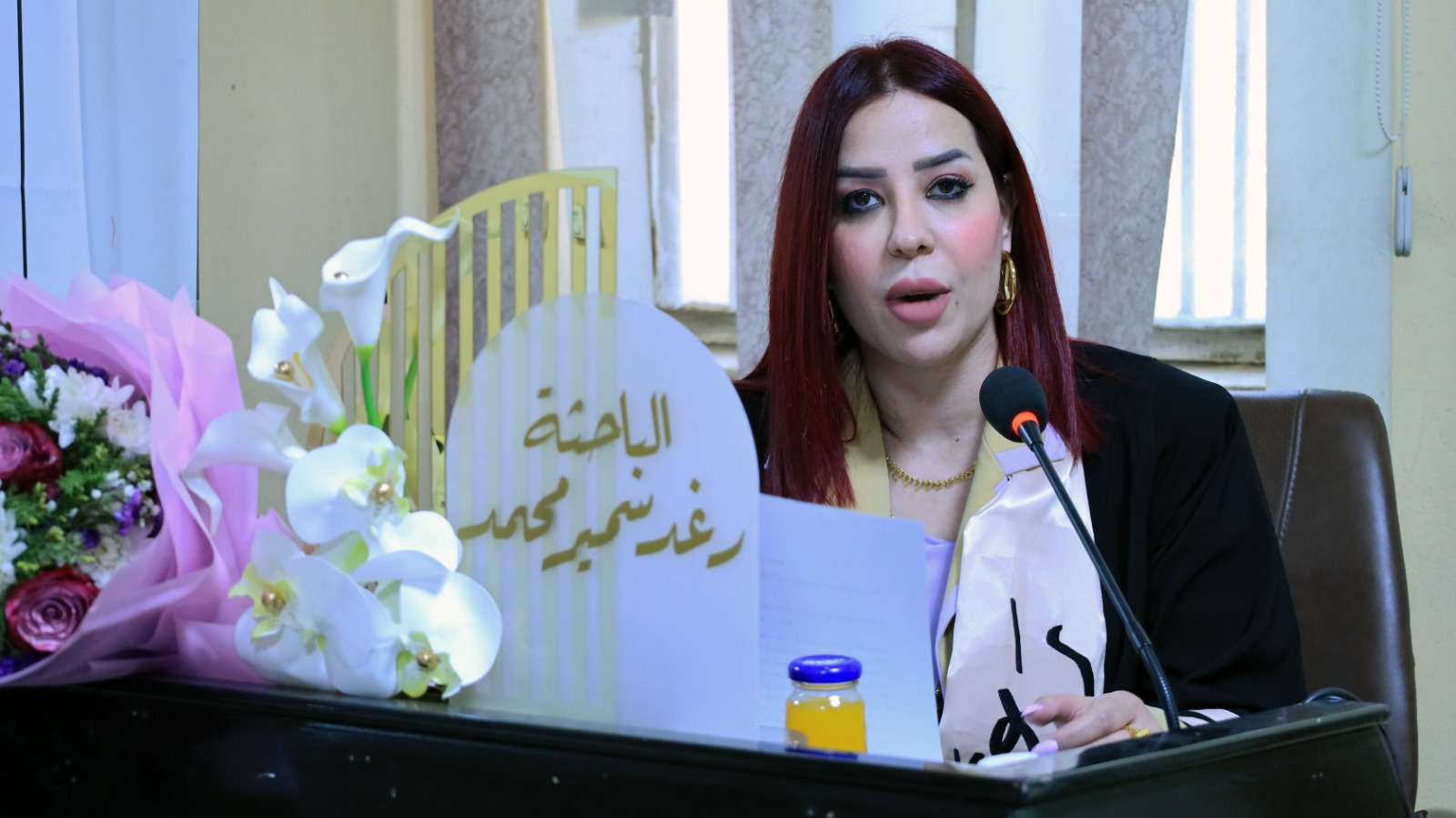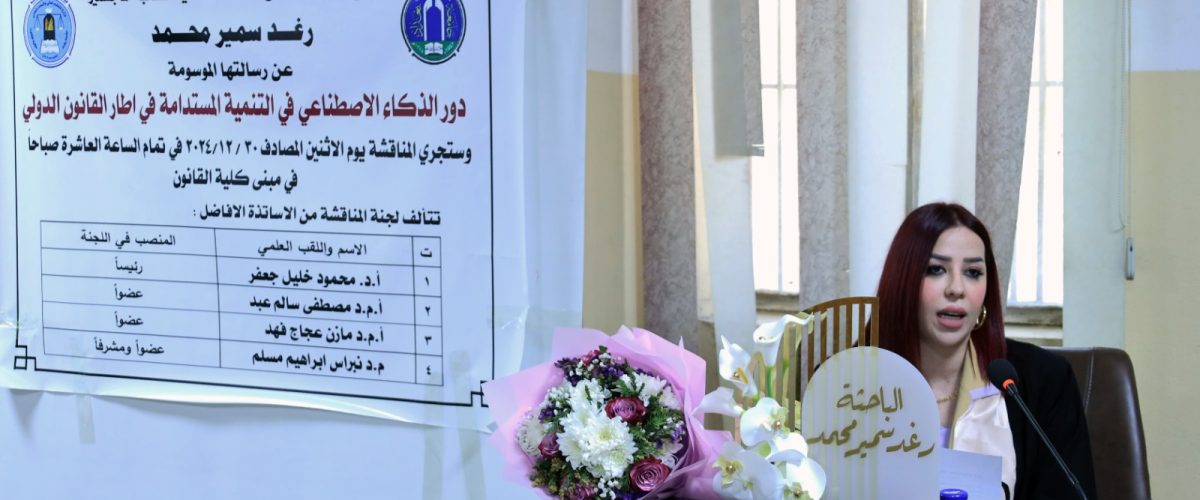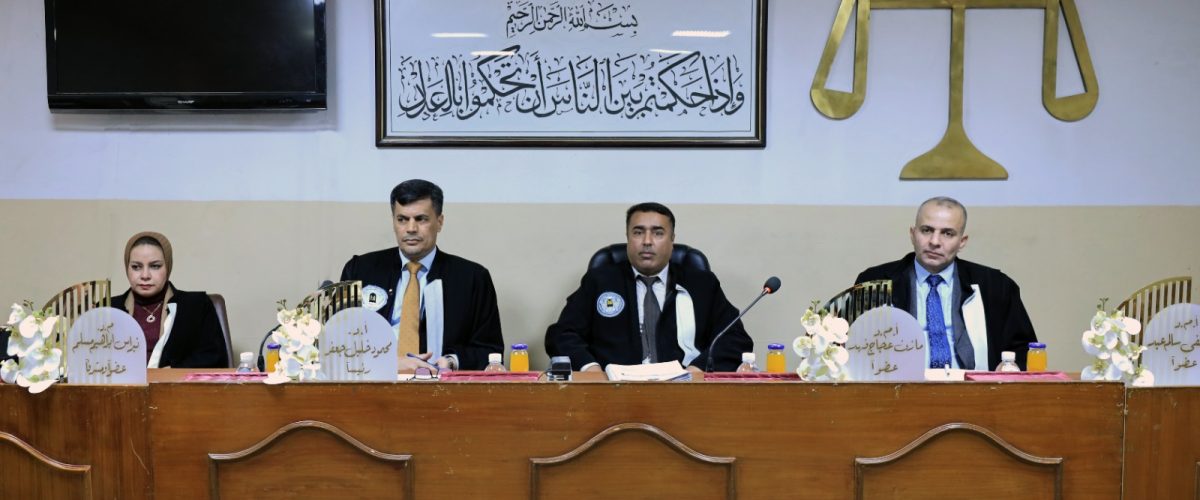The College of Law at the University of Baghdad discussed a master’s thesis in the field of international law by the student Raghad Samir Muhammad, titled “The Role of Artificial Intelligence in Sustainable Development within the Framework of International Law”, on Monday, December 30, 2024, in the model court hall at the college.
The discussion committee consisted of the following members:
- Prof. Dr. Mahmoud Khalil Jaafar (Chair)
- Asst. Prof. Dr. Mazen Ajaj Fahd (Member)
- Asst. Prof. Dr. Mustafa Salem Abdul (Member)
- Asst. Prof. Dr. Nebras Ibrahim Muslim (Member and Supervisor)
The thesis aimed to focus on the interaction between artificial intelligence and sustainable development, opening new doors for innovative solutions that promote economic and social growth linked to sustainable development in ways that preserve natural resources and achieve a balance between current and future needs. Additionally, the thesis discussed the regulation and development of AI technologies within ethical and legal frameworks that define what is right and wrong.
The thesis consisted of three chapters:
- The first chapter covered the concept of artificial intelligence and its relationship with sustainable development.
- The second chapter addressed the international regulatory framework for artificial intelligence and its impacts on sustainable development.
- The third chapter discussed the ethics of artificial intelligence and its applications in sustainable development.
The thesis concluded with several recommendations, the most important of which were:
- Legislators should develop the regulatory environment to align with artificial intelligence technologies, ensuring they do not exceed human control and are safe and accurate against attempts to misuse them for illicit purposes.
- Countries should adopt successful experiences in the field of sustainable development and create plans that involve the use of AI applications to achieve economic, social, cultural, political, and environmental dimensions of sustainability.
- International and regional organizations should play a greater role in raising awareness about artificial intelligence by organizing forums, conferences, and workshops aimed at educating individuals and communities on the ethical aspects of AI and robotics.
-
Proactive legislation should be introduced to set boundaries and controls for AI technologies, regulating all stages of their production and establishing clear legal provisions regarding criminal liability for crimes committed through AI, ensuring explicit laws for AI-related crimes.



